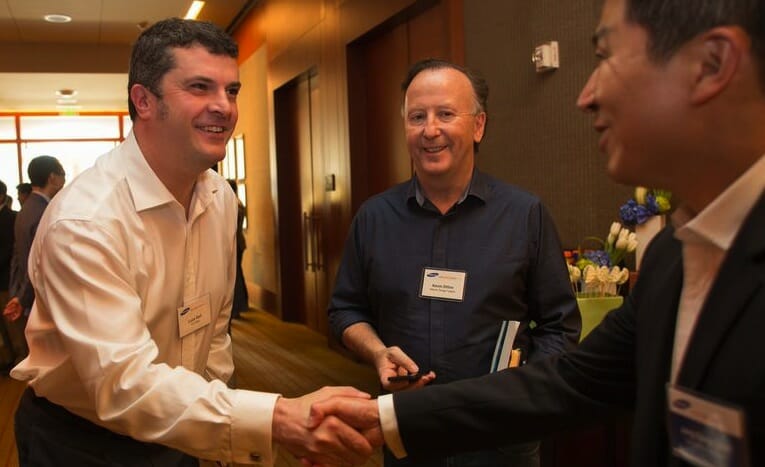Jun 10, 2014 What it Means to Host a Meeting

A few weeks ago, we produced an event in Silicon Valley for executives, clients, and guests of Samsung Ventures America. The audience was a mix of venture capital partners, executives from Samsung North America and Korea, as well as other members of the venture community. The afternoon event afforded Samsung Ventures an opportunity to introduce their new CEO to the audience in addition to the type of networking that is so important to the New Economy.
The Samsung team did a brilliant job of hosting their guests. They first took the time to create a thoughtful seating plan. We find that many hosts stop here, relying on the VIP guests to find their place at the table. But their team took it a step further by personally greeting guests in the ballroom foyer upon arrival, providing immediate introductions to their waiting CEO and executive team, before finally escorting the guests to their reserved seat in the ballroom. While hosting a meeting at this level may seem commonplace, I find it to be a rarity these days. Although the level of casual accessibility that many companies in that particular ecosystem does offer some interesting connection points, the role of the meeting host often is inadvertently diminished. I applaud the Samsung team for the gracious accommodation of both their guests and their internal executive team.
The verb host suggests exactly what our client exhibited: the act of accommodating the guest. Make it easier for your event attendees to establish connections by anticipating their arrival as well as having a plan in place to create a seemingly effortless and personal connection to the hosts. There is an extra step of briefing your internal stakeholders and getting their buy-in on the plan. But the end result of an extra internal meeting or conference call is an event with much higher level of interpersonal connection.

Sorry, the comment form is closed at this time.